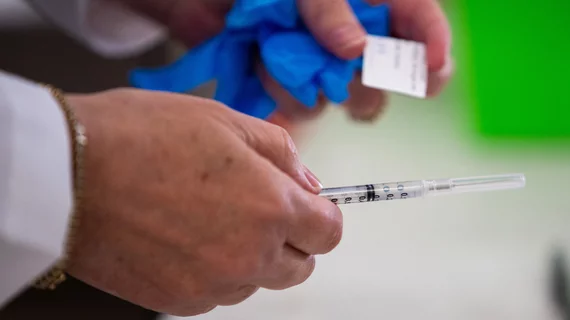COVID-19 vaccines prevented 3M deaths
COVID-19 vaccines have been extremely effective in preventing deaths and hospitalizations, according to a recent study. In fact, an estimated 3.2 million excess deaths and 18.5 million hospitalizations have been prevented due to vaccines, the Commonwealth Fund found.
The U.S. gave the first vaccine two years ago, and roughly 655 million vaccines doses have been administered since. About 80% of the population has received at least one dose, preventing a wave of deaths and serious illness.
The Commonwealth Fund used a computer model of disease transmission to estimate hospitalizations and deaths averted through the end of November 2022. The model used age-stratified demographics, risk factors and immunological dynamics of infection and vaccination. The pandemic trajectory was then compared to “a counterfactual scenario without a vaccination program” to determine the impact of vaccines on deaths and hospitalizations.
In addition to millions of fewer deaths and hospitalizations, vaccines also lead to nearly 120 million fewer COVID-19 infections.
Beyond the impact on the population, the vaccine program in the United States also has a fiscal impact, saving the nation $1.5 trillion in medical costs that would have been otherwise incurred.
“Our findings highlight the substantial impact of the U.S. vaccination program on reducing infections, hospitalizations and deaths,” the study found. “Curbing hospitalization rates by reducing both COVID-19 incidence and symptom severity is particularly important amidst the strain on the health care system caused by unusually high levels of flu and RSV (respiratory syncytial virus). COVID-19 vaccination has preserved hospital resources for individuals who would otherwise have not received timely care.”
There are likely other impacts from vaccines that haven’t been quantified. For example, vaccines have enabled children to go back to schools in person, which could be considered a “societal value of the ongoing vaccination program,” the Commonwealth Fund wrote. In addition, vaccines have likely prevented many reinfections, which have a higher risk of death compared to initial infections.
“The estimated infections, hospitalizations, and deaths averted by vaccination are particularly striking when compared to the actual values observed during this time period,” the Commonwealth Fund stated. “Since December 12, 2020, 82 million infections, 4.8 million hospitalizations, and 798,000 deaths have been reported in the U.S. In other words, without vaccination the U.S. would have experienced 1.5 times more infections, 3.8 times more hospitalizations, and 4.1 times more deaths.”
Despite the clear success of vaccination, COVID-19 variants have thrown some uncertainty into the strategy, with the Omicron variants particularly immune-evasive. Even with the Omicron variant, vaccines have proven important measures to prevent death and hospitalizations.

